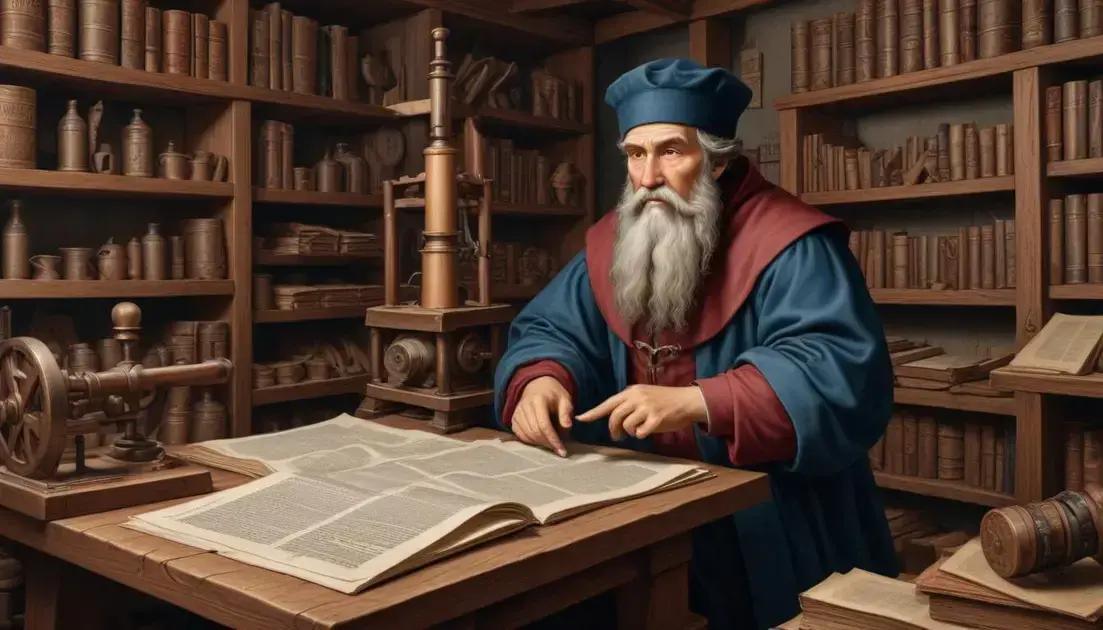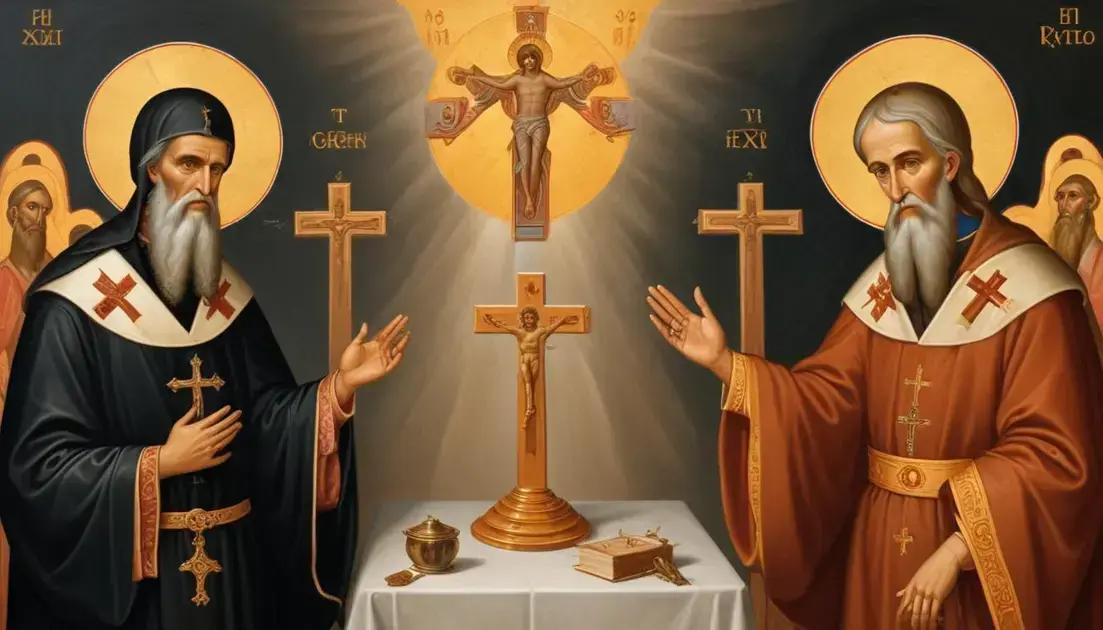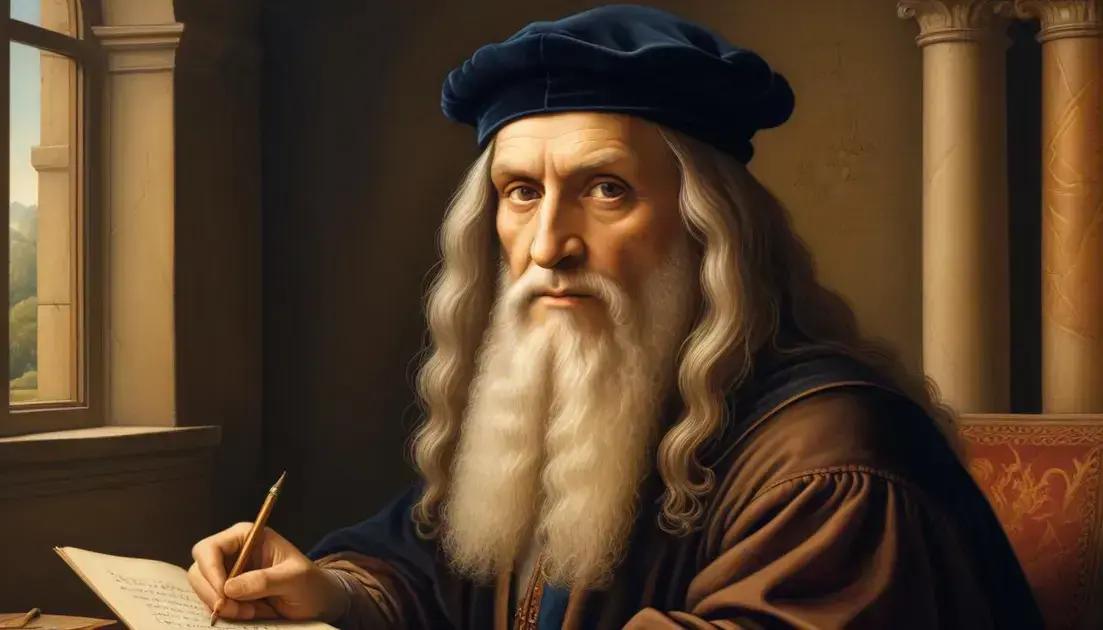
Johannes Gutenberg and the Printing Press: The Revolution that Changed the World
Johannes Gutenberg’s invention of the printing press revolutionized the world by making books accessible to all, greatly enhancing literacy and the spread of ideas. This innovation laid the groundwork for the Renaissance and allowed for the rapid dissemination of information during the Reformation, empowering individuals to question established beliefs. Gutenberg’s legacy continues to influence modern communication and knowledge sharing, demonstrating the importance of information in shaping society.
Have you ever thought about how the Gutenberg printing press changed the world? This incredible invention didn’t just speed up book production; it transformed society!
The Life of Johannes Gutenberg
Johannes Gutenberg was born around 1400 in Mainz, Germany. He came from a wealthy family who had connections to printing. He faced many challenges throughout his life, but his passion for knowledge drove him forward.
In his early years, Gutenberg learned about metalworking and developed skills that would later help him create the printing press. He dreamt of making books available to everyone, not just the rich. By around 1440, his dream became a reality when he invented the movable type printing press.
This invention allowed for faster printing of texts. It was groundbreaking! With kinetic metal type, pages could be produced much quicker than before. Gutenberg’s press changed the game for publishing.
Gutenberg’s most famous work, the Gutenberg Bible, was printed in Latin and showcased his talent. It was beautifully illustrated and crafted, showing the potential of his printing technology.
However, Gutenberg faced financial difficulty due to legal issues with his business partners. Despite this, his invention laid the foundation for the spread of literature and ideas. His work helped spark the Renaissance and the Reformation, influencing Europe in profound ways.
The Invention of the Printing Press
The invention of the printing press was a key moment in history. Gutenberg’s design made it easier and faster to produce books. Before this invention, books were copied by hand. This process took a long time and was very expensive.
Gutenberg’s press used movable type. This means individual letters could be arranged to form words. Once set, these letters were inked and pressed onto paper. This method allowed printers to create many copies quickly. It changed how information was shared.
His first major work, the Gutenberg Bible, was printed around 1455. It was stunning and changed how people viewed literature. For the first time, a single book could be produced in large numbers. This increased access to reading materials.
This new technology also helped spread ideas. Soon, printers across Europe adopted and improved upon Gutenberg’s design. They printed everything from religious texts to scientific works.
The impact of the printing press cannot be overstated. It helped launch the Renaissance and the Reformation. Ideas spread faster than ever before. People began to question beliefs and seek knowledge.
Impact on Society and Culture
The impact of the printing press on society and culture was huge. Before it, books were rare and expensive. Only the wealthy could afford to learn from them. With printing, this changed completely.
Books became more available and cheaper. People started to read more. They could explore new ideas, stories, and knowledge. This led to more people becoming educated.
As a result, the printed word helped spread the Renaissance. Artists, scientists, and writers shared their work widely. Everyone could access different views and learn from them.
The printing press also played a major role in the Reformation. Martin Luther’s ideas spread quickly through printed pamphlets. This movement changed how people viewed religion and authority.
With more access to information, people began to think for themselves. They started questioning long-held beliefs. Libraries grew, and public discourse flourished. Society became more dynamic and open.
This shift had lasting effects on culture. Literature, science, and philosophy thrived. New movements emerged, shaping the modern world.
The Role in the Reformation
The printing press played a crucial role in the Reformation. This movement changed the way people viewed religion. Before the printing press, many people learned about faith from priests. Information was limited and often controlled.
With the printing press, new ideas spread quickly. Martin Luther’s 95 Theses were printed and distributed widely. This challenged the Catholic Church’s practices and beliefs. People began to read and question what they were taught.
Many religious texts were translated into local languages. This allowed everyday people to read the Bible for themselves. They no longer had to rely on interpretations from clergy.
This access to printed materials empowered individuals. People started to think critically about their beliefs and practices. The Reformation led to the rise of various Protestant denominations.
As new ideas spread, debates emerged. Everyone had access to different points of view. This shift contributed to a more diverse and rich cultural landscape.
The printing press not only fueled the Reformation but also changed society forever. It democratized knowledge and transformed religious practices around the world.
Legacy of Gutenberg
The legacy of Johannes Gutenberg is felt even today. His invention of the printing press changed the world forever. It laid the groundwork for modern communication and publishing.
Gutenberg made books widely available to people. This increased literacy rates across Europe. More people could read and gain knowledge, leading to a more informed society.
The printing press helped develop new ideas in arts and sciences. It allowed for quicker sharing of discoveries and theories. Scholars could debate, learn, and grow faster than ever.
His influence extended beyond Europe. The printing press spread to Asia, Africa, and the Americas. Each culture adopted and adapted his technology in their ways.
Gutenberg’s impact also lives on in digital media. Today, we still rely on the principles of printing for e-books and online content. The need for information remains as strong as ever.
In summary, Gutenberg’s legacy is a testament to the power of innovation. His printing press sparked a revolution that continues to shape our world.
Conclusion
In conclusion, the invention of the printing press by Johannes Gutenberg transformed our world in many ways. It made books accessible to everyone and sparked new ideas. This led to a more educated society that questions and explores different views.
The impact of the printing press can still be seen today. It laid the foundation for modern communication and technology. It shows us how powerful information can be when shared widely. As we continue to innovate and evolve, we must remember Gutenberg’s legacy.
By valuing knowledge and encouraging curiosity, we can build a brighter future. Gutenberg showed us that with the right tools, anyone can make a difference and change the world.


